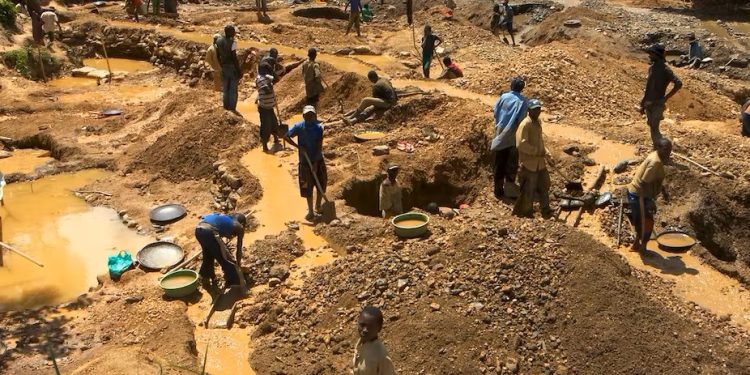Galamsey: Dr. Theo Acheampong Warns Ghana Risks Deepening Crisis as 70% of Small-Scale Mining Remains Unlicensed
Political Risk Analyst and Economist, Dr. Theo Acheampong, has cautioned that Ghana risks sliding further into an environmental and economic crisis unless bold reforms are implemented to tackle illegal mining, popularly known as galamsey.
Speaking on JoyNews’ Newsfile programme on Saturday, September 20, Dr. Acheampong disclosed that nearly three-quarters of small-scale mining activities are carried out without licenses.
“Seventy percent of all small-scale mining activities are not licensed, and even amongst those that are licensed, we are not too sure of the mining practices they are using. That is compounding the scale of the problem,” he warned.
He attributed the persistence of the menace to weak regulatory oversight and poor enforcement, stressing that the challenge is not new. “We have a major problem on our hands, and this is not something just today,” he noted.
Rejecting calls for a state of emergency to combat galamsey, Dr. Acheampong argued that such measures have historically failed to produce lasting results. He pointed to past interventions such as Operation Vanguard and Operation Halt, which saw security forces deployed to mining sites.
“As soon as the troops leave, you then have the miners going back to engage in the same operations. Imposing a state of emergency is just going to be a short-term solution. It doesn’t fundamentally address what I call the supply-side issue driving the menace,” he explained.
Instead, Dr. Acheampong called for sweeping reforms in Ghana’s mining regulations, beginning with the repeal of Legislative Instrument (L.I.) 2462, which grants government and the Minerals Commission the authority to license mining in forest reserves.
“The first thing, for me, is let’s repeal that L.I. 2462. That is part of the problem. The L.I. gives the government and, to that extent, the Minerals Commission and other bodies, the authority to license in forest reserves. That is unconditional,” he argued.
He also reminded government of its own campaign commitments to address the issue. “When the NDC was campaigning in opposition, they made statements to the effect that when they come into power, they would repeal that. It’s nine months down the line, and we need to see some actions related to that,” he added.








